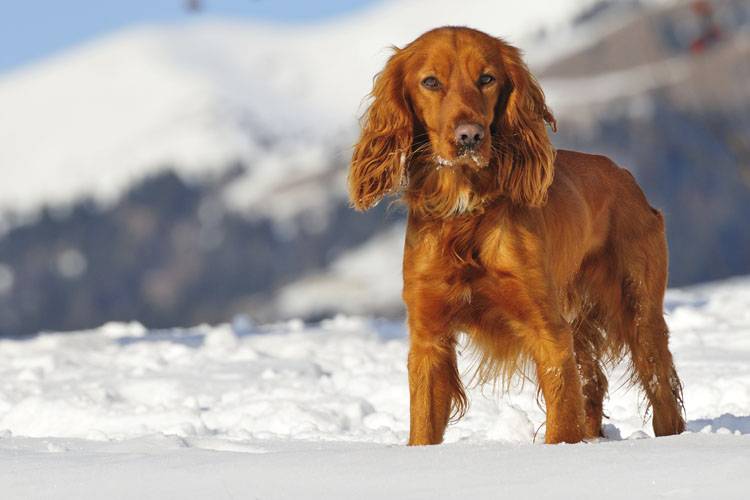Is Your Dog Winter Ready?
You may be ready for the cold winter season, but is your dog? To ensure you and your pet are ready for the chilly weather, acquaint yourself with the following winter dangers and solutions to avoid them.
Insulate the Doghouse
During the winter, it can get very cold, which can pose a severe problem for your pet. For most dogs who are left outside, even if protected by a doghouse, a severe wind chill can be dangerous for their health. Make sure your doghouse is well insulated. The door of the doghouse should be facing away from the wind to avoid exposure.
Dogs can develop dry skin due to the extremely dry winter weather. Dryness of the fur and skin can cause your dog to scratch and bite at his coat, creating hot spots. A hot spot is a skin lesion or scab caused by excessive biting or licking from your canine. To avoid this, be sure to brush your dog regularly and consider supplements or a shampoo to help with the dry skin.
RELATED: Best Dog Shampoos for all Coat and Skin Types
Provide More Food
If your dog spends a lot of time outdoors, give him more food than normal to avoid malnourishment. More food will provide more protein to keep your dog’s fur in good shape. If you live in an area that freezes, be sure to monitor your dog’s water bowl or purchase a heated bowl to keep the water from freezing. This will help prevent your dog from becoming dehydrated.
Keep Antifreeze Away
As with any season, you must be careful of antifreeze that can leak or spill from your car. If your dog consumes any antifreeze from a small leak in your driveway, this can kill your dog if not treated immediately. Dogs are very attracted to the taste of antifreeze so keep it sealed up and out of harm’s way. Consider using a pet-safe antifreeze, which is free of ethylene glycol. Ethylene glycol is the chemical that makes the antifreeze sweet and appealing, but toxic to your dog.
Rinse Your Dog’s Paws
The chemicals and salts that melt the winter ice on the road and sidewalks can also be poisonous. When taking your dog on a walk, he can pick up these substances in his pads. If he accumulates traces of these chemicals on his feet and then cleans his paws when he returns home, he will end up ingesting the chemicals, causing an upset stomach at the very least.
To prevent this, always rinse your dog’s paws with warm water when you return from a walk or event outside where he may have come in contact with these substances. Remember to let his paws dry before letting him back outside again.
Clean Paws and Fur
Exposure to temperatures below zero even short-term can cause frostbite of the feet, nose or ears. Indicators of frostbite may be red, gray or white colorization of the skin and possibly peeling skin. Remove ice and snow from your dog’s paws and fur right away. Ice can form in the toe pads as well so make sure to thoroughly check your pooch’s paws. Also, think about clipping the fur between the pads to reduce the amount of snow that can collect there.
Use a Plastic or Ceramic Bowl
Metal bowls and buckets can cause a problem in freezing temperatures. If the bowl freezes, your dog’s tongue may get stuck to the metal, which will in turn cause him to get scared, try to pull away and ultimately harm himself. If it’s below 32 degrees, use plastic or ceramic pet bowls.
Purchase a Dog Sweater
Some dogs with little fur or low body fat don’t easily adapt to cold weather. Older or sickly dogs can be extremely sensitive this time of year as well. If possible, keep your dog indoors or in a warm shelter outside. Sweaters or jackets can give him an extra layer of protection as well.
Turn Off Your Space Heater
Every year, numerous house fires start with space heaters being knocked over by pets (and sometimes humans!). Make sure that if you use a space heater to warm your home that you purchase one that will shut off automatically when tipped over. These are safer for you and your dog.
By educating yourself on these common dangers and knowing how to avoid them through preparation and proper dog training, you will be able to have a safe and comfortable winter season with your dog!
READ ALSO: Frostbite in Dogs





